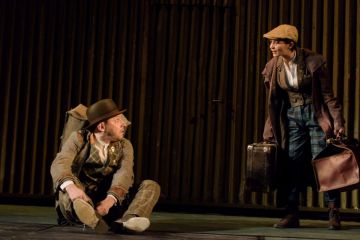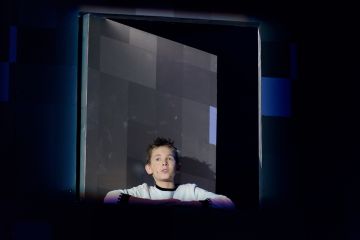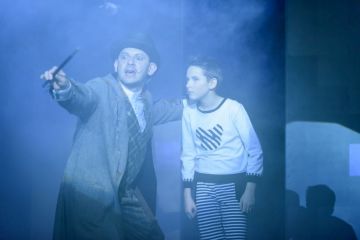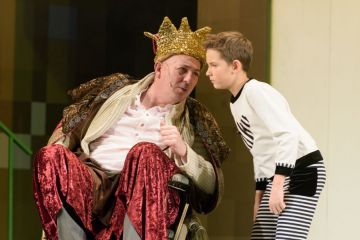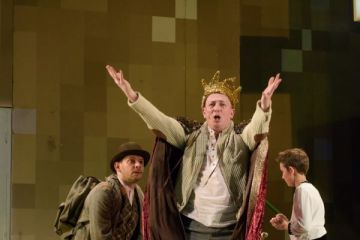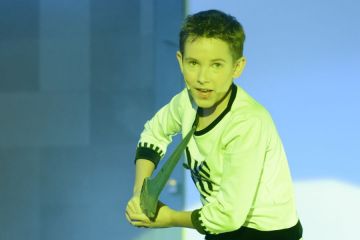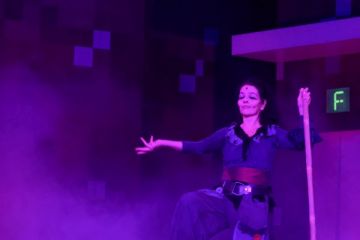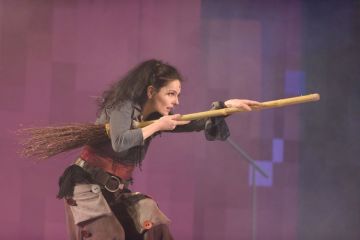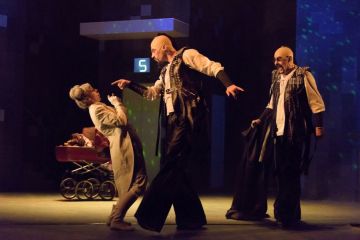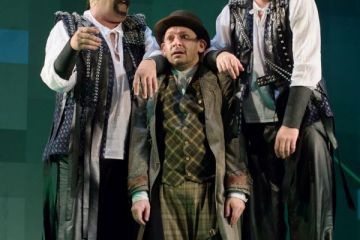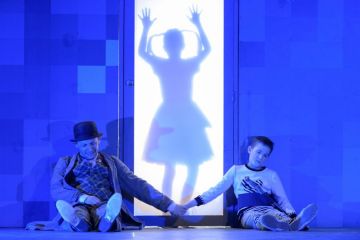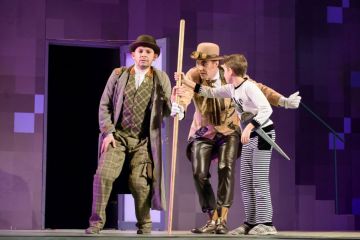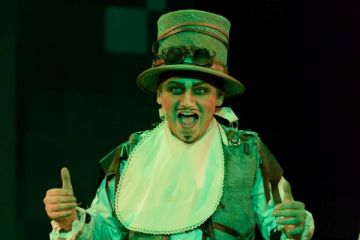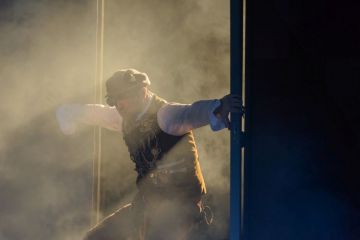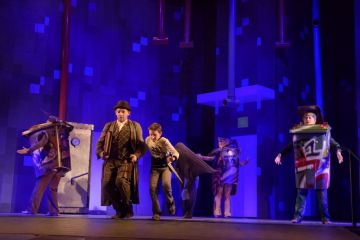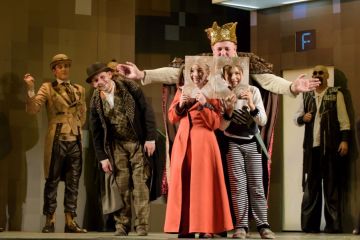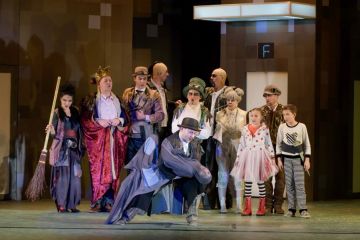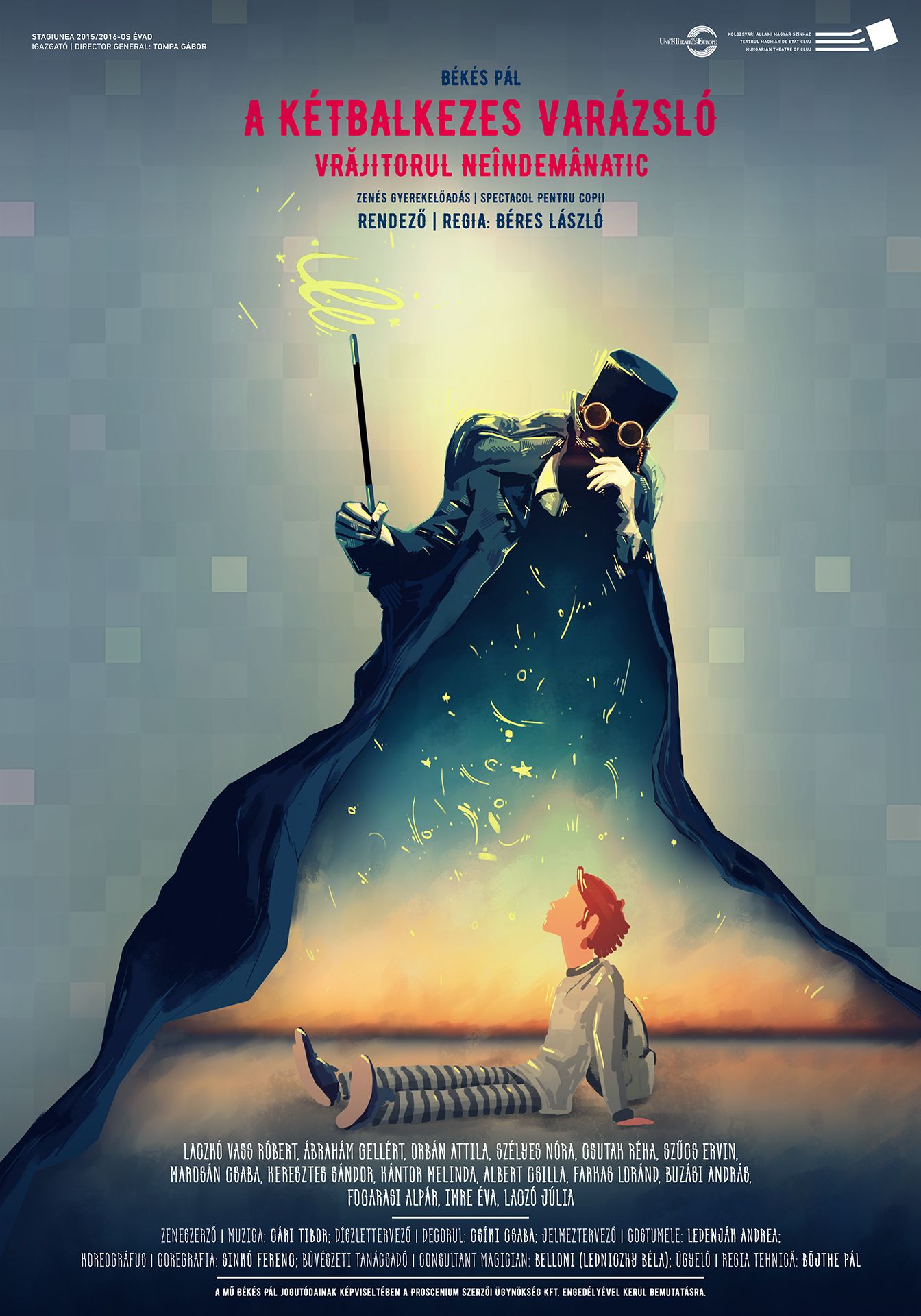
The play is about us, about the child within us, who cannot find the charm and fairytales in life anymore, his own “Once upon a time”, who is lost among the high-rises made of concrete, and between the pixels, in this rhythm called life which is spiced up only by the insignificant running-around, chasing “a sprig of parsley” to be put in the tasteless soup of existence.
The play has as many levels of comprehension as the ages and levels of understanding of each of its viewers, it is a poem which beckons to be discovered, savored and lived, it is a meditation and at the same time an invitation to meditate upon the charm of life which can still make way for fairytales, even though most of the elements of such fairytales have been apparently irrevocably stifled by the concrete of modern civilization.
The Hungarian Theater of Cluj chose a proven recipe for a kids’ play, for there will always be parents who take their children to the theatre, however, it is as if this play is even more characteristic for the city of Cluj than previous such performances dedicated to young people. Because those who can truly experience the performance are precisely those children living in neighborhoods who are searching for a miracle themselves. And the success of the Harry Potter books - which started 15 years ago and is still going strong - is the best example of the fact that there are such children in the world (...) The Lubberly Wizard builds on exactly this type of a sentiment, in a way that belongs to Cluj even more, because it offers to the children who live in concrete flat neighborhoods the miracle of the possibility that the grumpy neighbor from below, or the building manager can also be a king, moreover, he could actually transform into that role in front of our own eyes, while the ever-noisy neighbor who always is banging around could be the unemployed marshal, and one is able to rise above those negative characters who are thought to be indestructible and are feared by all - as is usually the case in fairytales.
One of the main virtues of the performance is that under the cloak of magic we can observe at once both the nostalgic allegory for fairy tales and a socialist system longing to get back into the bourgeois milieu, while still, we are witnessing a true fairytale with princesses and monsters, battles and tests. The story absolutely has the potential to entertain the entire family.
The spells appear in the form of magic tricks, where invisible strings move the floating broom, while smoke machines make the pagic even more spectacular. Still, perhaps one of the more wittier scenes like the one in which the escape of Fitzhuber Dongó is portrayed on stage by having numerous actors rush across the stage dressed as Fitzhuber, until suddenly the wizard „catches up” with himself.
Csaba Csíki’s set design perfectly reproduces the coldness of residential neighborhoods, nonetheless, with the play of lights and sounds the creators manage to depict a magical atmosphere. Composer Tibor Cári wrote the catchy soundtrack of the play specifically for the Cluj production of the piece by combining many musical genres (jazz, rock, tango and rap), creating a score that makes you want to dance. At the same time, Andrea Ledenják’s costumes were adapted to the mood of the production, being quite magical themselves. (...) Audiences made up of children cannot be fooled, for they can be both enthusiastic and critical: if the performance is good, they will voice that without hesitation, and they will do the same if it is a poor performance as well. The applause and cheers heard after the premiere prove the fact that The Lubberly Wizard was knocking on the right door...
Date of the opening: january 15, 2016
Date of opening: 15 January 2016
Duration: 2 hours 30 minutes with one intermission
The story begins in a school for wizards, where Dongó Fitzhuber, the bumbling future magician, tremblingly awaits his graduation results. Of course, he places last, and as a sort of punishment is appointed district wizard in the Bertalan Nimbusz housing estate.
This is a sympathetic tale about a magicians school, about wizardry, about the power of story and our desire for it. At the same time, the performance is about the friendship between a clumsy magician and a boy, an adult and a child, where both are pure in their own way and believe in stories.
László Béres











